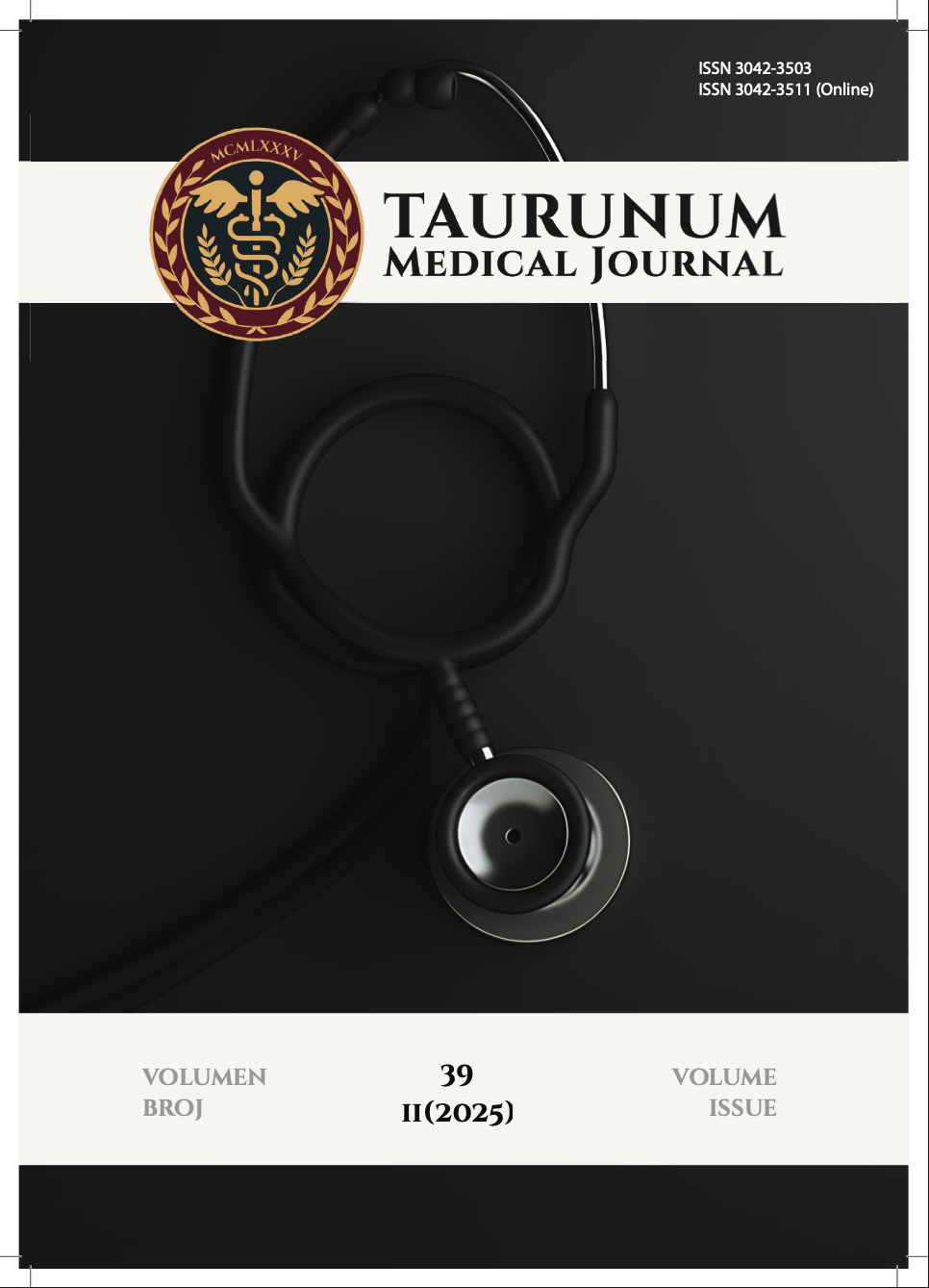
More articles from Volume 34, Issue 1, 2018
An immunohistochemical analysis of angiogenic profile in T1 bladder cancer with concomitant carcinoma “in situ”
Crosstalk between NCAM/FGFR and TGF-beta signalings: an in vitro study and evaluation of human kidney biopsies
Primary sinovial sarcoma of the lung - a case report
Hyperostosis frontalis interna: case report
Proliferation marker Ki-67 in early breast cancer
Article views
Citations

0
Prognostic significance of detection KRAS oncogene mutations in tumor tissue of patients with metastatic colorectal cancer
Department of pathoanatomical and laboratory diagnostics
University of Novi Sad , Novi Sad , Serbia
Department of pathoanatomical and laboratory diagnostics
University of Novi Sad , Novi Sad , Serbia
Department of pathoanatomical and laboratory diagnostics
University of Novi Sad , Novi Sad , Serbia
Clinic for internal oncology
University of Novi Sad , Novi Sad , Serbia
Clinic for oncological surgery, Oncology Insitute of Vojvodina , Sremska Kamenica , Serbia
University of Novi Sad , Novi Sad , Serbia
Department of pathoanatomical and laboratory diagnostics
University of Novi Sad , Novi Sad , Serbia
Published: 01.04.2018.
Volume 34, Issue 1 (2018)
pp. 12-13;
Abstract
Aim: To determine prognosic significance of RAS oncogene mutation detection in patients with metastatic colorectal carcinoma (mCRC). Introduction: CRC is still third most common cancer of both genders and second cause of death from malignancy in Western countries. In recent years, detecting RAS mutation in mCRC tumor tissue has became an imperative in selecting patients for monoclonal antibodies targeted therapy to Epidermal Growth Factor Receptor (EGFR). Nevertheless, there is no consensus regarding prognostic relevance of determining RAS status in patients with mCRC. Material and methods: Study included 116 patients with surgicaly resected CRC at Oncology Insitute of Vojvodina between January and December 2016. KRAS mutation detection was performed in formalin-fixed paraffin embeded tumor tissue samples processed by real-time chain polymerase reaction (real-time PCR) and applyng Cobas® KRAS Mutation Test and Cobas® 4800 System for detection of mutations in codons 12/13 and 61 of KRAS gene. Results: Average age in tested population was 65 years, with a male gender predominance (66.4%). Presence of KRAS mutation was found in 50.9% patients: 44.8% in codons 12/13, 4.3% in codon 61 and 1.7% in both codons 12/13 and 61. RAS mutated colorectal carcinomas (n=59) compared with RAS wildtype colorectal cancers, were significantly associated with male gender, moderately differentiated tumors, lymphovascular invasion and local nodal metastases. Conclusion: Our results show that, beside predictive, KRAS can also have prognostic significance regarding risk assesment for lymphovascular invasion and presence of local and distant metastases.
Keywords
Citation
Copyright
This is an open access article distributed under the Creative Commons Attribution License which permits unrestricted use, distribution, and reproduction in any medium, provided the original work is properly cited.
Article metrics
The statements, opinions and data contained in the journal are solely those of the individual authors and contributors and not of the publisher and the editor(s). We stay neutral with regard to jurisdictional claims in published maps and institutional affiliations.




